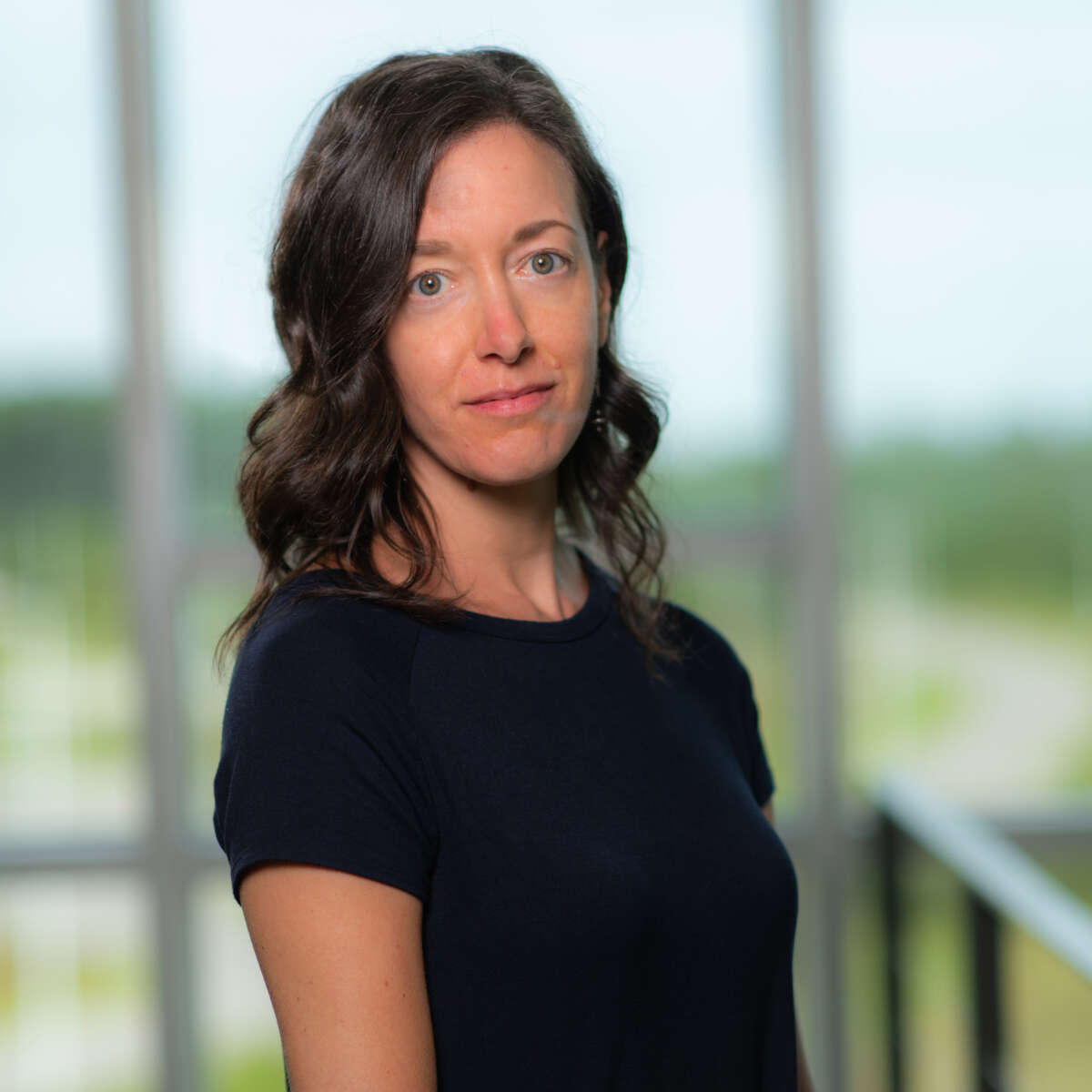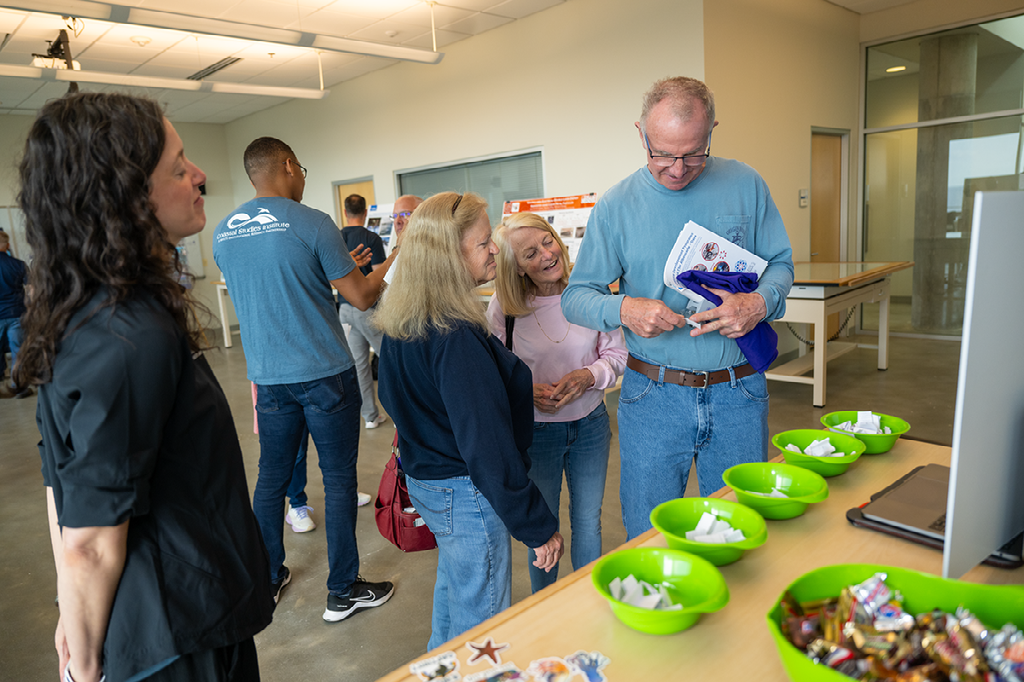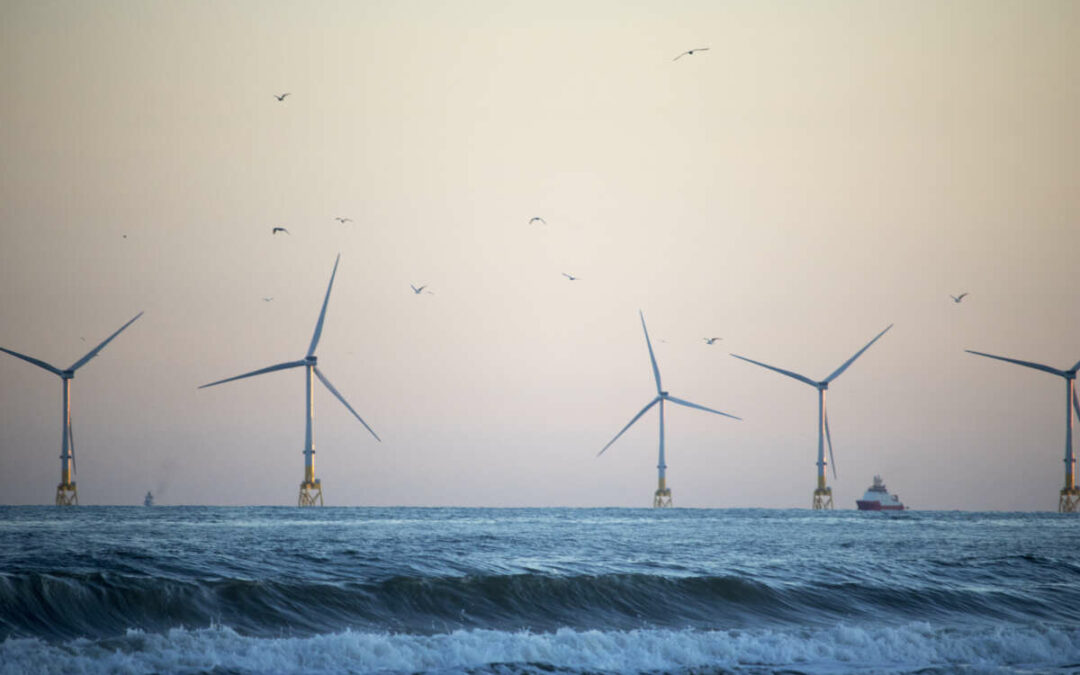Dr. Linda D’Anna, now a research associate at the Coastal Studies Institute, was once a budding biologist; but while in graduate school, her interests took a turn toward the social science aspects of coastal issues.
“I loved doing bio fieldwork, but I while I was starting to work towards my dissertation on oyster restoration in North Carolina, I noticed there was not as much attention being focused on human dimensions of that process. So, I decided to do more work involving social science rather than natural science,” states D’Anna. Human dimensions examine the way people interact with and think about the natural environment, as well as the impact humans have on it.
Her previous experiences in oyster restoration and a postdoctoral fellowship in marine social science focused on shellfish aquaculture helped shape her current research approach, and thus today she continues to expand her expertise and collaborations with others.

Dr. Linda D’Anna
As a social scientist, D’Anna aims to understand people’s perceptions, experiences, and responses related to different situations, policies, and environments. Many of her current projects investigate the attitudes of stakeholder groups towards marine renewable energy development in the waters off the East Coast. Much of her work is funded by the North Carolina Renewable Ocean Energy Program (NCROEP) and the Atlantic Marine Energy Center (AMEC), both organizations of which CSI is a founding member.
From a project’s conception to the sharing of information with collaborators and the public, D’Anna helps identify research needs, formulate research questions, and determine appropriate methodologies. She gathers data from stakeholders by hosting focus groups and workshops, conducting interviews, and distributing surveys, then organizes the multitude of responses in a way that is accessible to a broader audience.
“It is important that information is packaged in a way that all people can understand the topic of marine renewable energy and its development here on the Outer Banks,” she shares.
One aspect of her NCROEP-funded work is to understand people’s ocean values in anticipation of potential future proposals for ocean energy device installations. For this research, D’Anna seeks to understand the place fit relationship, or how technology fits into spaces that people have attached meanings to, and the acceptability of marine renewable energy development by communities and stakeholders.
In other words, she wants to know if communities and stakeholders could seemingly make space for marine renewable energy developments within their pre-existing ideas, values, and uses of the ocean.
Currently, she is collaborating with Dr. Eric Wade, another NCROEP-funded researcher at CSI, to gauge awareness, attitudes, and perceived potential outcomes of marine energy development among North Carolina residents and visitors to the Outer Banks.
To achieve the goals of her studies, D’Anna utilizes many different social science data collection techniques ing interviews, surveys, and mixed methods like Q methodology- an approach which combines both qualitative and quantitative measures to understand a comprehensive, and often diverse, range of opinions and viewpoints within a group of people.
While D’Anna’s research doesn’t have specific desired findings, she hopes that her work will contribute to a more comprehensive marine energy development process. By understanding the human side of this newer renewable energy sector early on, D’Anna believes it can inform and shape the development process to benefit a wide range of stakeholders.

Drs. D’Anna (left, foreground) and Wade (second from left, background) share their collaborative research with visitors during the CSI 2024 Open House.
“I am hoping that our work will demonstrate the need for marine renewable energy and how it can be developed in ways that are beneficial and accountable to coastal communities,” says D’Anna, “I also hope that it contributes to a development process that is as inclusive and equitable as possible.”
This is why for an AMEC project, D’Anna and her collaborators, Dr. Lindsay Dubbs and ECU Integrated Coastal Sciences Ph.D. student Jillian Eller, are utilizing stakeholder engagement techniques and efforts to better understand the varied stakeholder landscape, and to explore potential conflicts, collocation opportunities, and possible users of marine energy along the Atlantic Coast.
D’Anna is grateful for individuals’ willingness to participate in the research, emphasizing the depth of feelings people have for the ocean, and the care and passion which they bring to discussions about marine energy.
“I am still always surprised when someone is willing to give up their time to be interviewed and share their thoughts for a project, but I think it reflects how strongly people feel about the coast and ocean. It’s humbling and fulfilling to be trusted with what they are willing to share.”
She underscores the importance of including diverse perspectives in the development of marine energy technologies. She hopes to demonstrate that the human dimensions of marine energy are not just an afterthought, but a vital aspect that should shape technology development from the beginning.
D’Anna’s research provides valuable insights into the complex landscape of marine renewable energy. By focusing on the human dimensions of this emerging technology, she and her colleagues aim to lay the groundwork for a more inclusive and sustainable future for marine energy development.
Special thanks to Nijah Pope for their contributions to the above story. Pope was a CSI photojournalism intern while participating in the 2023 Outer Banks Field Site.
The preceding story first appeared in the Spring 2024 edition of CoastLines.



 Based at the Coastal Studies Institute (CSI), the North Carolina Renewable Ocean Energy Program (NCROEP) advances inter-disciplinary marine energy solutions across UNC System partner colleges of engineering at NC State University, UNC Charlotte, and NC A&T University. Click on the links below for more information.
Based at the Coastal Studies Institute (CSI), the North Carolina Renewable Ocean Energy Program (NCROEP) advances inter-disciplinary marine energy solutions across UNC System partner colleges of engineering at NC State University, UNC Charlotte, and NC A&T University. Click on the links below for more information. ECU's Integrated Coastal Programs (ECU ICP) is a leader in coastal and marine research, education, and engagement. ECU ICP includes the Coastal Studies Institute, ECU's Department of Coastal Studies, and ECU Diving and Water Safety.
ECU's Integrated Coastal Programs (ECU ICP) is a leader in coastal and marine research, education, and engagement. ECU ICP includes the Coastal Studies Institute, ECU's Department of Coastal Studies, and ECU Diving and Water Safety. The ECU Outer Banks campus is home to the Coastal Studies Institute.
The ECU Outer Banks campus is home to the Coastal Studies Institute.

